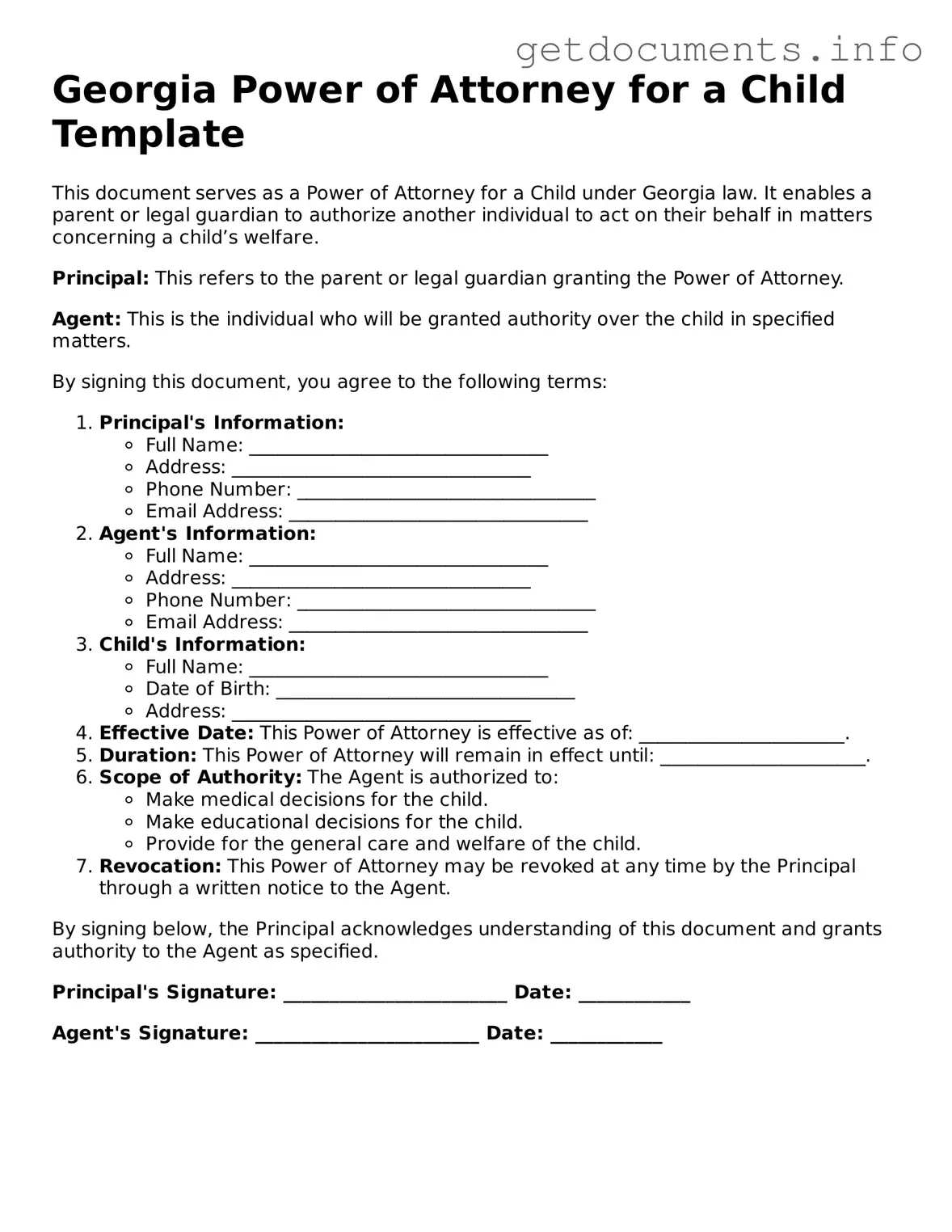Free Power of Attorney for a Child Template for Georgia
The Georgia Power of Attorney for a Child form is a legal document that allows a parent or guardian to grant another individual the authority to make decisions on behalf of a minor child. This arrangement can be essential in situations where the parent is unable to care for the child temporarily, ensuring that the child's needs are met. Understanding the importance of this form can help ensure that children receive the care and support they need during challenging times.
To fill out the form, please click the button below.
Access Power of Attorney for a Child Editor

Free Power of Attorney for a Child Template for Georgia
Access Power of Attorney for a Child Editor
Got places to be? Complete the form fast
Fill out Power of Attorney for a Child online and avoid printing or scanning.
Access Power of Attorney for a Child Editor
or
⇩ PDF File
